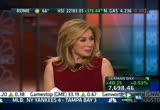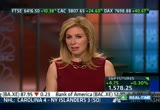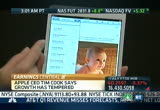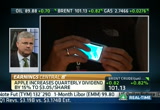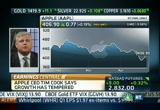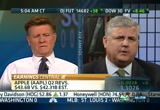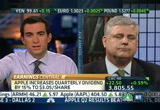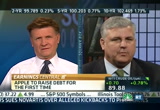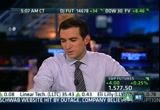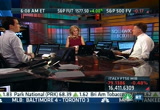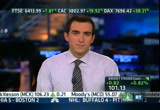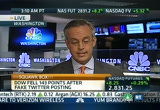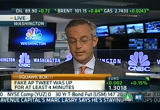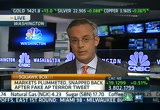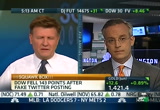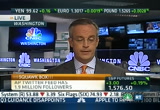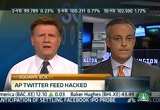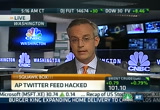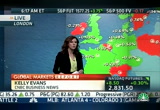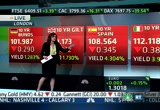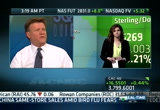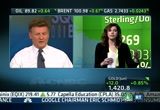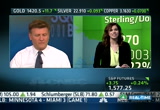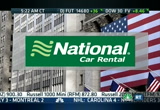tv Squawk Box CNBC April 24, 2013 6:00am-9:00am EDT
6:00 am
kernen and andrew ross sorkin. welcome back, joe. >> you caught me without a mike. i just want to say it but i can't, can i? >> you cannot. >> i cannot say it. >> he'll be on the "today" show. >> don't say it. >> south dakota or north dakota? >> north dakota. >> had to feel for him. >> it was there but for the grace of god. >> it's cable. >> i'm going to take this away from you before you can say it. >> i wanted to open the show with it. it's cable. i think i could get away with it. >> maybe. maybe not. >> you want to do the rest of it it? >> no. >> i'll take it away from you first. we'll see what the market reaction tells us about investor volatility. we begin with apple. the tech giant reported better than expected earnings in revenue. apple announcing plans to unlock
6:01 am
more cash for investors. listen to this. raising quarterly dividend and increasing stock buyback program to $60 billion from $10 billion. the new capital plan includes issuing debt for the first time because they have that money sitting overseas but can't bring it back because policy at this point. analysts point to comments from ceo tim cook on the conference call he said some really great stuff was coming in the fall and 2014. they say that suggests that apple would have no new products in the market for the next few months. cook acknowledged apple's growth tempered but stressed the company's position remains strong. revenue forecast falls short. the june quarter is the weakest quarter every year. joining us right now is senior communication technologyanaly
6:02 am
analyst. this seemed to be everything that investors had been hoping for, no? >> yes but i think the gross margin was a concern for many investors not only for the quarter but for the guidance. the questions people are going to ask are when are gross margins going to stabilize? demand was healthy. apple will need to innovate. we're in that you got to believe me phase and now we're talking about a time line of the fall. we got support on the dividend and buyback but gross margins and innovation will be key. >> you thought that you would hear about new products even sooner than the fall? >> it was possible that you might hear particularly about a low cost to approach the emerging markets and to offer something for the smartphone user who is more price sensitive. >> hold on a second. if you think of low cost phones, they talked about strength in china. you can't have strength with low cost phones or strengths in emerging markets and not have it impact gross margins.
6:03 am
what's more important to you? >> a low cost phone that maintains a margin. they'll need to move some of the product mix out, innovate and i think tvs. i think i radio. something along the lines of i payments. that's what will move the sentiment and move the needle financially. >> i kind of feel this company's pain. after watching the stock be down more than 40% heading into this earnings, 44% from september to before the earnings call yesterday, it seems that investor base at this point is so demanding. i don't know how they can possibly please everyone. honestly i thought by what they said yesterday that would give some sort of relief to the investor base. why not? >> i upgraded shares on monday for the first time ahead of the quarter because it has been oversold. you have a changeover in investor base. you have growth investors moving
6:04 am
to a value investor base. i think you'll see support in the stock with yield. support in the stock because of buyback. people will give them a pass candidly and you'll see the stock trade up over the next three months or so. >> what's your price target? >> $600. >> so you think it should be well above where it is right now. what do you think will happen? do you think it will change over the investor base? >> change over investor base and gross margins. you have had a fast follower in samsung take a significant amount of market share and we haven't seen innovation yet. >> what was old price base before you got to 600? >> didn't change it. >> it was always 600? >> initiated the stock around 575 or so. >> you weren't following it until it came all of the way down? >> correct. i picked it up in november time frame when the market perform. >> why do you have any open that all of a sudden end of 2013, 2014, we're going to see products that will break
6:05 am
through? between now and then a lot can happen? there's a lot of people out there trying to innovate and the stuff we've seen apple come up with in the last two years has not been mind-blowing or the kind of stuff that's been as revolutionary as things they were doing before. >> agreed. form factor was biggest change they made on the smartphone front. i said tvs is the biggest issue. a lot of people have talked about that. i think the market in the tv market is ripe for change. people want three things. they want a la carte pricing, ease of use for content browsing and they want the capability to have access to the internet beyond that. >> that's as much about the technology and hardware as it is about the relationships that you have with content providers and steve jobs had a special relationship that probably is hard to replicate if you are tim cook with what was then disney which then was able to open up the floodgates. the question is whether they will be able to do that now. >> they have to be able to make the comcast and time warner's
6:06 am
money same way they made the song producers money. if they go with at&t or verizon, that's a strategy they can come around. they already have -- >> they said they wouldn't make boxes. i thought phones were tough too but they had steve jobs to do phones. steve jobs was here to do tv, i might think about it. i like the idea that it's now a value stock with a $380 billion market cap. it's second only to exxon but now a value stock. it's weird. i always called it a gadget maker but people said they qu t quieted fears that its gadgets. it's a gadget maker with the biggest market cap in the country next to exxon. >> this he also have an operating system in place. you see what they are talking
6:07 am
about with itunes for on demand. and don't forget icloud. they have stores so if your smartphone has a problem, you see an apple expert, samsung doesn't have that. >> best buy messed that up. that does work i guess. is ron johnson going back? they went let him back. >> john, thank you for joining us today. >> thank you. >> i almost said those two words again. those two words fit to any situation. >> east coast they fit together? >> the first two. when he finished i was going to say -- then i could have said it and it would have typified what i was feeling, right? i wish those words were legal. they're not. >> did you see by the way -- you're a morning money reader. north shore asset management who probably would have liked to use those two words about the apple conference call last night says can we please have someone with guts to become the ceo so tim
6:08 am
cook can apologize to him in private and real ceo can tell investors how awesome the company is. i did just say that. >> frustration probably. >> frustration with how they are actually -- not just products but how they are dealing with investors. >> it must be frustrating for people that got in as stock was running 600, 650. the entire way down they've been told compared to this stock it's ten times earnings. compared to that stock it has this growth rate. compared to this. from 800 down to 400, you've been told that it's cheap because of the fundamentals and there's no reason for it to go lower but they don't -- what if samsung and android come along. if you don't sell more gadgets -- you have to feed the beast every quarter for apple. you can't come up with a small ipad or pink ipad. >> you can't go two or three
6:09 am
quarters without a new product. >> is it cheap at 400? i have seen people say all of the way down. now on business networks. now. just like the market. we had a couple last week. markets last hurrah. now we're 1% off the highs again on the s&p. >> 1% off. >> remember all those bubble stories. >> right. >> here we are. >> when it comes to apple, all earning season we've been asking you to play along from home. this is armchair analyst poll. how did you do on apple? a close vote. "squawk" viewers were right. 36% of you predicted apple would beat earnings estimates. close vote. you guys were right. >> the other story we are talking about this morning, that fake market moving ap tweet about white house explosions. the fbi and s.e.c. are now investigating and cnbc's eamon
6:10 am
javers is in washington with the latest. what's going on with this? >> good morning, andrew. it was a bizarre couple of minutes yesterday in washington and on wall street. it began about 1:07 p.m. here's the fake tweet posted to the ap twitter feed. breaking. two explosions in the white house and barack obama was injured. look at what it did to the dow jones. down 143 points and back up again in the space of just about three minutes. a lot of this attributed to automatic trading augu. a few minutes later the white house briefing was set to begin and by tradition ap reporter gets the first question and in this case she took the opportunity to clear up the situation explaining to the rest of the media folks watching just what had gone on. take a listen. >> i just want to say at the top that it appears as though ap's
6:11 am
twitter account has been hacked so anything that was just sent out about any incident at the white house is obviously false and we'll put out something shortly. >> i appreciate that. i can say that the president is fine. i was just with him. >> it's not every day that you see the white house press secretary take to the briefing room to reassure people that the president is safe but that's what happened yesterday as this thing spiraled out of control fairly quickly and then spiraled back into control quickly again. the news cycle nobody else appears to have followed that story. on wall street trading bounced back right back to its initial trading range so no lasting harm done here but a lot of questions now about the role of the media here, role of technology and role of high-speed trading in the markets. >> any new thoughts about whether the white house or anyone else should use twitter as an outlet and more importantly different types of
6:12 am
security procedures? for example, my twitter account has one password. i imagine the white house has one password as does cnbc and ap. maybe there's a better way? >> there's a lot of question on whether you need two factor authentication to have more sophisticated password system for twitter accounts with more than 1 million followers. they can do a lot of damage if bad information goes out. the white house uses twitter all the time and just within the past couple of weeks we've seen the s.e.c. make a decision that companies will now be allowed to use twitter to put out some of their financial and market moving information. so a lot of traders on wall street need to follow twitter in real time to get that information from companies now coming off their twitter and other social media feeds. there's a question here about security and you can imagine that a lot of people are going to question exactly how twitter secures some of these accounts and maybe twitter will have to offer up new security services as a result of this. >> maybe for the overall market this is a wash because the dow
6:13 am
came right back to where it was. somebody was trading on this billions and billions and billions of dollars changed hands and you got to wonder who lost money? fbi is investigating. s.e.c. is investigating to find out if this was intentionally set out but they are looking at all of the trades made and the difference. there are still going to be a lot that comes from this. i don't know who lost money on this but somebody did. >> i think the calculation on s&p was that about $136 billion worth of value vanished and then reappeared magically a couple minutes later and if you had timed that bottom just exactly right, you could make a colossal amount of money buying on the dip. >> it's a zero sum. someone sold at the bottom. someone was forced out for no reason.
6:14 am
it's 200 billion. it's top story if you do the math. 200 billion came off and then came right back on. >> it isn't human beings. >> maybe not. >> somebody sold and somebody bought. >> the other point here, guys, if i could jump in is computers are trading very fast automatically in milliseconds but a human being reading that tweet for me as a professional journalist -- >> i was sitting in a chair and you knew it was wrong immediately. >> it doesn't have the feel of something that the ap would put out. in context i look at my twitter feed and i can see there's no other tweets about this. i follow a lot of wall street people. a lot of washington people. if there had been an incident at the white house, my twitter feed would have exploded. you're a human being. that's where wall street is. trading happens faster than
6:15 am
speed of human thought. that's what people are concerned about. >> what did we learned about last week? whatever we're in with twitter and facebook, you can't believe anything. any blogger can write whatever he wants and sooner or later all of this information might be valued at what it is actually worth which a lot of it is valued at zero. >> you bring up last week and you think about the bombing that happened last week. and the explosion. >> someone is under arrest. they're not under arrest. this is happening. here's two bad men we need to get on the cover of a newspaper that actually people read. they don't believe "the post" normally but they read it. i don't believe -- and cnn, what is it? what did james earl jones do? the ultimate in imparting accurate and timely information with a huge mess up. who do you believe nowadays? >> there's an argument to be
6:16 am
made which is clearly the digital world can hurt in these types of examples. can justice quickly help in a way we didn't have before. that's in fact -- when you think about the boston bombings and what happened there, the fact that we actually caught these guys was in large part because of the digital world. >> a lot of cameras around. >> but there's -- there are two sides to this. >> just to offer up a thought here on behalf of those people who did for an instant believe this when they saw this, it comes in context of a terrible week. a bombing. an explosion. people are sort of a little on edge already. they see a thing like this and it comes within a week of very bad news, a lot of people's human emotions take advantage and they say maybe this thing is real. >> someone actually did it. nice work, idiot. that's funny. real funny. all right.
6:17 am
>> we were dealing with a fake press release last week too. it didn't make sense either. a lot of crazy people out there. we go to east coast or do you want to go -- >> i'm trying to think of other words i can use. be careful. >> we're talking about the north dakota anchor. the local nbc station. >> wasn't it a small town in north dakota? >> you can google it if you would like to know the inside on this. it's time for global markets report. let's get to kelly evans standing by in london. good morning to you, kelly. >> good morning. i'll try not to start out with profanity. it's extraordinary to look at what's happening across europe. after session yesterday where we saw gains in the range of 2% to 3% for some of these indexes, not really on any major news, in fact the news was negative for pmi figures, more negative news
6:18 am
this morning as germany's main business sentiment comes in soft and more green arrows nevertheless. this is the theme we've seen play out across europe. it's liquidity and it's hard to fight. italian stocks selling off about 0.7 of 1% but they have been rallying quite strongly over the last couple sessions. let's look at the peripheral debt markets. we've seen extraordinary new lows here. italy now moving back up toward 4% level. we were as low as 3.91. extraordinary if you think about it. in spain over here, 4.3%. we saw flows into the periphery this morning. we're seeing a bit of a move back out. it's the same story for bunds. we were green yesterday across the periphery and today it's back to all red.
6:19 am
keeping a very close eye overnight as well on 4x rates. a lot to do with japanese yen. 99.65. we may try to hit that triple digit mark. up a tenth of 1%. look for it to boost stocks across europe, across the u.s. the japan impact if you want to call it that is that powerful. we'll keep a close eye on this as well. euro/dollar higher. sterling/dollar higher. next thursday is an important date to watch. it's when european central bank meets. speculation they'll cut rates to explain even though data is weaker, european stocks are hanging in there and they'll have to deliver. back over to you. >> are you going to cut the corporate tax rate in portugal? did you see where it is right now? >> that's right. they're going to cut it from 25%. >> 24 right now. sorkin, 24. they're going to cut it from 24. >> to what? >> i don't know.
6:20 am
it's already 24. even in europe, my god, kelly, you had a great week. finally this nasty austerity where people actually have to spend the amount that they actually bring in. that kills you, doesn't it? you've hated it all along. >> i think the term doom loop has been appropriate here. i think unfortunately when you have highly indebted economies if you decide you're going to hurt growth, that decreases. you know a little bit about math, joe. i know that. if you hurt the denominator you'll increase debt to gdp ratio. >> ouausterity over there they didn't cut spending, they raised taxes. that's not the kind of austerity that will help things. you have to take lumps just temporarily to get back on track. >> i'm not sure there's austerity that helps things unless you talk about anything that's structural reform and these loosy goosy terms is necessary and making markets flexible is important but what happens is we get no need eed
6:21 am
changes and no changes to entitlement programs. i love the idea but reality of how this is implemented is terrible. >> it wasn't cuts near term. it was tax increases. >> if you structure it one way or another it will hit household spending power. yes. >> all right. a big 180, joe. >> send your credit card back. with what you have been spending over there, i got to put you on a monthly -- you just can't keep paying your old bills with no credit card bills. send it back. >> you know that people and governments are not the same thing. come on. >> okay. i'm not talking about government. i'm talking about you. send it back. >> okay. all right. let's just end it there. bye, guys. see you tomorrow. >> bye, kelly evans. we'll see you tomorrow. >> traveling to paris. rome.
6:22 am
>> coming up, another guy we need to talk to this morning. a veteran leader in the tech industry. former amd boston hector ruiz is joining us on the set to talk rivalries, partnerships and much, much more. >> announcer: before you hit the road, here's your travelers check. travel i.t. company is out with top global routes. here are four of the top five. melbourne sydney. beijing, shanghai. rio de janeiro and sau paulo. which one tops the list? find out next. governor of getting it done. you know how to dance... with a deadline. and you...rent from national.
6:23 am
because only national lets you choose any car in the aisle... and go. you can even take a full-size or above, and still pay the mid-size price. this is awesome. [ male announcer ] yes, it is, business pro. yes, it is. go national. go like a pro. it's easy to follow the progress you're making toward all your financial goals. a quick glance, and you can see if you're on track. when the conversation turns to knowing where you stand, turn to us. wells fargo advisors.
6:25 am
6:26 am
appliance maker whirlpool reporting first quarter profit of 1.97 per share that's excl e excludeing certain items. sales shy of street estimates. they did see higher profit margins for fifth consecutive quarter. the doj unveiling a former complaint against lance armstrong yesterday saying he violated his contract with the u.s. postal service and was unjustly enriched while cheating to win tour de france. this is what he was hoping to avoid when he started lying about it and when he did the oprah interview and other things because he hoped they wouldn't do this. that's why it took so long. how many years did you know he wasn't being honest? >> you know i always wanted to believe. you were not a believer. i was trying to believe.
6:27 am
>> it's sad to see your bubble pop. >> it was. >> from apple fighting with samsung to amd battling intel, rivalries are strong in the world of tech. joining us on set, former amd ceo ruiz. thank you for joining us. it's an interesting thesis that you have here that from your viewpoint i can see where you're coming from, others might disagree with basic -- maybe not facts about monopolies being bad but what happened between intel and amd. there are different narrateiviv on how that came out. i knew jerry sanders. i saw that company begin back then. it was always an uphill battle. a lot of people said amd really just copied a lot of intel's technology right from the very start. if intel was the first one
6:28 am
there, why shouldn't they enjoy dominance if they are good at what they do? >> no issue with that. as a matter of fact, at the beginning amd was allowed to be a second source to intel. that was in the beginning of the pc market, ibm insisted there was a second source. they played a role of helping intel secure that business. over time they became more independent and began to do their own work and began to do a better job than intel was doing and that's when i think some of what i believe were inappropriate, unfair and abusive practices kept them from being a strong competitor like it could have been. >> there was a time when competition made intel better and there was a niche that amd was able to occupy and have a pretty good business. i remember 30, 40, 50, amd would get up there and come down again and again. i could never understand how you would make a long-term
6:29 am
investment necessarily. >> the company in financially definitely had an awful history of ups and downs. for those who might have an opportunity to read the book, one thing i explain very carefully. when amd introduced the 64 bit architecture it was superior to what intel had. the market that it served, the share that it served, and property that it deserves never materialized. >> how did intel do that? did they break the law or is all fair in business? >> i'm not a lawyer. i don't think i can tell you. >> unfair practices -- >> i do believe in any businessman there's an understanding of what fairness is and when a company practices things such as -- for example if you manage to convince a customer that your product is
6:30 am
better and the customer is excited about using it but the punitive action of using the product is so strong that it keeps them from doing it, i think that's an unfair practice. >> that's interesting that that's out there. you expect a company like google or company like microsoft or big powerful companies crushing the competition in a legal way by using market strength and usually it's good technology that got them in that position in the first place. using that as kind of -- you almost admire a company that can do that. >> absolutely. let me use the analogy of baseball. if you play hard ball, that's perfectly legal. nothing wrong with playing hard ball. in a referee or umpire is not calling shots right and if the person starts throwing a spit ball and doesn't call it, i think it's pretty damaging. and in technology industry, more than in any other industry, six months is a lifetime. so if you get hurt by six months or a year, you are hurt deeply.
6:31 am
>> you think this came back to hurt intel. amd is under $2 billion company at this point. intel is over 100 billion. it would be doing better? >> that's an interesting theory i have which is a strong opinion after ten years of battling intel is that the companies that have done unfair practices in the business have been hurt even more over the long run. >> because they are focusing on the competition rather than focusing on what they should be doing in r & d themselves? >> exactly. one of the things i talk about in the book that i think is very interesting is we adopted a business strategy that's quite different from other companies and we said we're going to focus on the customer and if we could really get in bed with the customer so deeply entrenched and understand what they want and need, who cares what competition does. we'll understand the customer better. intel and microsoft focus
6:32 am
internally on competing and trying to brow beat the competition in some cases like they did with netscape and intel with us, they lose sight of where the market is going. i believe the reason they are struggling in mobile space is they weren't paying attention to it enough. i was running a communication business at motorola in the late 1980s. i remember having meetings with microsoft people talking about mobility back then. they weren't paying attention to it. intel is the same way. if you look at the company, it's having a tough time. the challenge intel faces today are much bigger than the ones they faced when they were competing against us. >> hector, thank you. i appreciate it. sounds interesting. >> thank you. >> good luck with the book. still to come on "squawk" this morning, quarterly results from boeing, procter & gamble, ford, sprint and eli lilly.
6:33 am
6:34 am
you're thinking of the 1.6 million daily customer care interactions xerox handles. or the 900 million health insurance claims we process. so, it's no surprise to you that companies depend on today's xerox for services that simplify how work gets done. which is...pretty much what we've always stood for. with xerox, you're ready for real business. which is...pretty much what we've always stood for. but i wondered what a i tcustomer thought? is great, hi nia... nice to meet you nia, i'm mike. what do you drive? i have a ford explorer, i love my car. and you're treating it well? yes i am. there are a lot of places you could take your explorer for service, why do you bring it back to the ford dealership? they specifically work on fords. it seems to me like the best care. and it's equal or less money, so it's a value for me. get a free brake inspection and brake pads installed for just 49.95 after rebates when you use the ford service credit card. who doesn't enjoy value?
6:35 am
[ male announcer ] there are people who find their own path. and never back down. who believe the american dream doesn't just happen, it's something you have to work for. ♪ we're for those kinds of people. because we're that kind of airline. and we never stop looking for a better way. it's how we've grown into america's largest domestic airline. we are southwest. welcome aboard.
6:36 am
6:37 am
swing this morning. eli lilly hitting wires this morning. earnings of 1.14 a share. ahead of 1.05 the street expected. revenues are in line. coming up, learning from the pros. we'll talk golf investing. that's next. there are more similarities than you might think. green is the word of the day. you can see joe is out there right now. first as we head to a break, check out the dollar. stay tuned. we have a lot more. joe will give us a lesson on the tee this morning. ]xuñ
6:41 am
welcome back. we're kicking off our new learning from the pro series this week. today we take to the putting greens to pair up investing pros with golfing pros and hear their top tips and strategies when approaching their craft. here with us on the green, dan is a chief investment officer and a golf professor who is unfortunately going to try to help with my putting. this entire series, i need to divorce my own feelings about this sport because i feel fatalistic. if investing was the same as golf, i would put everything in t-bills. i just asked what is the definition of insanity and is that what they say? doing the same thing over and over again and expecting a different result. with my putting and short game, that's where i am right now in
6:42 am
life. we're going to bring this back to investing in a second. we are talking off camera as you get older you said something about yipping things. i was good when i was younger. my putting, my chipping, what happens as you age? >> the motor skills, it's been proven, the more you do something over and over again you wear out a spot in the brain that actually controls that. >> i would like to believe that. it's not my fault. it's my neurons are worn out. a psych ietwon't help me either. >> if you fall in love with the line and forget about your speed, you're going to be much worse off than if you just focus on speed. >> correct. greens have slope. contour. if you can't control how hard you hit a putt, it's going to curve differently every time. the faster the ball is going, straighter the line it takes. when the ball slows down, it
6:43 am
curves more. you have to control the speed and how hard you hit the butt to be a good putter. >> a pendulum swing makes a big difference. i have tried belly putters and i am able to -- i can't do a pendulum on any of them for some reason. i can translate yips to long putter. i can't take it back. i don't know the answer for that. i tried left hand low. i tried everything. i'm back to conventional putter, right hand low and i'm taking my lumps. >> you have taken all of the steps. as you know, those bellies and longs will be -- >> they might be. i think they should be. when you anchor it, the nerves -- i'm not going to do it. i would have to claw it if i did it. now i'm back to maybe doing the claw. >> there's another way to avoid the yips. doing something different. >> let me try -- hold this. i'll try a left-hand low belly
6:44 am
put. i'm going to anchor this so solidly. i'm trying to lose weight which means they don't work quite as well. i'm going to do a left-hand low on this. how was speed? that was pretty good. you're going to have to do the rest. i'm not doing anymore. i had groove built in. bring it back to investing. are there similarities? patience? not rushing things? can you equate something to worry about speed and not direction. >> once you commit, you commit to the shot the way i think about it, you have to commit to an investment. we spend time thinking through an investment before we make it but executing that investment is critical. concentration is huge. if you don't concentrate on all of the aspects of what can go wrong in an investment, it's not going to be successful. >> that won't work in golf. if you concentrate -- people always say that to me.
6:45 am
you got to be confident and believe in what you're doing. i say it's hard to be confident when you know you'll hit a lousy shot. >> seeing what's not there is important too. i may try this. we'll see in a second. you have to see -- you can't -- >> you have the belly going there. >> this is not exactly how i normally would do it. >> judge your investing from this. >> they will be comfortable i spent most of the time at the desk and not on the golf course. that isn't going to work very well. >> speed wasn't that bad. >> and i'm trying to figure out where we are right now, what do you think about putting new money to work right now? >> this weekend there was a poll and excessive amount bullish talk. i think a lot of people were making the point that everybody is all in now. there's nowhere to go but down.
6:46 am
i don't think that's the case. i think this is a party that individuals weren't invited to because they're not engaged in the market right now. i think that's the watch word. maybe saying in our firm that a client once made, i don't like the market here i'll wait until it's higher because people didn't want to get involved. >> wait until it's higher. this is going to be on friday where i went out on the course. we were going to do a lot of these segments and becky and andrew will get involved as well. they want to go to a mini golf place or something. i don't know. it's going to be a fun segment. there are some things that you can learn from the game. i want to -- i want to take off two weeks and quit this game. coming up, the big business of big data companies spending a lot on this. is the investment paying off and what is big data? we'll find out and at the top of the hour, the cfo of procter &
6:47 am
6:49 am
6:51 am
welcome back to "squawk" this morning. our next guest is making big waves in the big data space. what exactly does all of this mean? joining us now to talk about is opra solutions ceo. and you have an interesting business because you're taking big data for companies that collect all sorts of data, don't know what to do with the data and starting to slice and dice and figure out how to make it work and commercialize it. >> yeah, and how to make money. >> how to make money. give us an example of a client. i'll throw one out. i know british airways is a client of yours. what kind of data. you call them up or they call you up and say, we've got this hard drive worth of stuff. >> right. >> what are you doing with it? >> they have data from, you know, the passenger information. enormous amount of information. what they're trying to do is deepen the engagement with the
6:52 am
customer. but the ability to do it is compromised because the amount of information is too much. we're coming in and extracting the patterns from the data and figuring out how to improve the service quality in terms of pricing, in terms of customer engagement, et cetera. >> what's like a real thing? if i'm a british airways customer, something they could do for me they weren't able to do before. >> a small example. for example, say you lose your bags. often times an airline doesn't know they lost your bags. what our system is doing is looks at service disruption and said what kind of reparation can they do for you? it's a fast track response then to say, look, there was a disruption, you didn't have a good experience, so they would then come back and find a way in which they would make the experience better. >> is part of the problem that all of these systems don't talk to each other? are you just connecting lots of dots in some ways? >> that's the most basic level. yes, you have to connect the dots. the larger issue is the patterns of behavior.
6:53 am
some people will go to east asia and europe. and sometimes they don't take a british airways flight. if you know there are flights you're not taking, they give you an opportunity to find out how you can sort of promote british airways more closely with the customer. >> apply this for us to the financial space. i know you work with morgan stanley's wealth management group. we had greg fleming earlier this week. what would you do for them? >> couple of things. we have a couple of applications up for morgan stanley. one of them is dealing with performance measurement. like it's very hard to measure one adviser with another. how are they performing? they have customers with different investment orientations, so we built a big data application which allows you to measure one adviser to the other to say who's doing better. a simple case, but very, very difficult. the platform does about 25 billion competitions a week. just in order to make that comparison. so that gives them a level of insight into behavior which they
6:54 am
didn't have before. >> ibm does this too, why would someone choose your firm over ibm. >> i think we're small, nimble, move fast, get it done quickly. >> you need hector's book. the guy just on. >> hector luiz. >> he won't be crushed. >> you've got to be nimble and choose your niche. >> it's so vast, it can support, you know, 50 ibms. for instance, bill gates made a point. he said we do machine learning. and a breakthrough would be worth 10 microsofts. we're looking at a fundamental shift in the industry. >> machine learning. >> that's where i get scared. >> how much is this machine learning and algorithms versus your folks going in and trying to fine the connections on your own? >> that's how we extract the patterns. it's a branch of artificial
6:55 am
intelligence where you teach an algorithm to recognize patterns. and so people come in and connect the dots, but at the same time, we use machine learning mealearn ings to find the patterns. >> don't teach them too much. the machines. >> well, the question is the machine is -- >> they won't need us. you haven't seen any of these movies. >> i've seen them all. >> you saw "terminator." >> yeah. all of them. >> all right. how often is it that a company's been collecting data for years and they just don't even know what's in the data? >> i would say that's the default situation. most people do not know how much equity's resident within their data. >> is it ever that a ceo calls you up and says, look, i've got all this data, i don't know what's in here, come in here and even try to help me figure out what's in here that i don't even know. >> yes, we do that. we do it often we come in and look at the data to see how they're going to improve the
6:56 am
core processes. how much embedded values within the data. we do that often as a first step. >> okay. if "squawk" was to collect some data, what would you be -- if we hired you to figure it out for us. we have a great web page now. >> well, i would to know in terms of improving your ratings and your traffic. we work in the uk. in the uk, i don't know what the details are. but we're finding for videoen o demand, what kind of audiences do they attract and what kind of advertising revenues can flow through. we work that out. >> arnab, thanks for coming on this morning. >> thank you very much. >> very interesting data. you're scared of big data, aren't you. >> music is from "rise of the machines." saw that yesterday, particularly what happened with trading. >> biotechnology, just be careful. be careful. machines -- >> we do have quarterly results from ford and procter & gamble
6:57 am
coming up. ♪ [ agent smith ] i've found software that intrigues me. it appears it's an agent of good. ge has wired their medical hardware with innovative software to be in many places at the same time. using data to connect patients to software, to nurses to the right people and machines. ♪ helping hospitals treat people even better, while dramatically reducing waiting time. now a waiting room is just a room. [ telephone ringing ] [ static warbles ] [ beeping ]
6:58 am
red or blue? ♪ but at xerox we've embraced a new role. working behind the scenes to provide companies with services... like helping hr departments manage benefits and pensions for over 11 million employees. reducing document costs by up to 30%... and processing $421 billion dollars in accounts payables each year. helping thousands of companies simplify how work gets done.
7:00 am
good morning, everybody. welcome back to "squawk box," i'm becky quick along with joe kernan and andrew ross sorkin. we are watching futures and watching shares of ford because those earnings are just out right now. you can see the d futures up by about 12 points. >> we should get to phil who has the numbers. he's standing by. mr. lebeau. >> andrew, we've got a beat by ford on the top and bottom lines, the company earning 41 cents a share compared with the
7:01 am
street expecting 37 cents a share for the first quarter. that's on an operating basis. automotive revenue a smidge higher than expected at 33.9 billion. when you look at ford, this is the tale of two companies here. north america, best quarter ever on a profit basis for ford. they earned $2.442 billion. dropping just a smidge compared to last year. but an improvement overall of $309 million. and europe continues to be the problem. the company losing $462 million. that's another increase of $313 million compared to last year, although ford says it believes the restructuring is on track. they are not changing their guidance for the remainder of this year. and the automotive margin, by the way, guys, 5.2%. a beaten o the top and bottom lines by ford.
7:02 am
>> thank you, phil lebeau. >> procter & gamble is out. in the current quarter, third quarter was 99 cents. 3 cents ahead of expectations. but the fourth quarter is below expectations for where the street is. will cop to lowering guidance. below the 81 cent number carried by the street, also for the year. the company now sees earnings in a range of 390 to 405. 390 to 398 and the street at 405. the organic sales growth guidance is being maintained, which some people might take some consolation for. organic sales growth guidance of
7:03 am
3% to 4% for the fiscal year. that would have to be some kind of margin squeeze. a member of the global council. the stock's down about $1.50 so far on this. the fourth quarter's below the street. do you -- is that true? >> well, actually, let me talk first about the third quarter, i'll bring that right to the fourth quarter. we had another quarter of steady progress in the third quarter, top line was in line with our guidance. market share improved broadly. important strengthening as we went through the quarter and an operating earnings, earnings per share and cash flow were all over target. those results enabled us to do three things. one, we increased our dividend 7%, making this the 57th dividend increase. and we slightly improved our
7:04 am
core earnings per share guidance taking up the lower end of the range. so things are improving broadly. >> so the street was too high for the year? >> well, in the preview, you were quoting all earnings per share and their core earnings per share. >> but you're looking at 396 to 404 and the street's at 405. >> that's correct, becky. >> and in the fourth quarter, the organic sales growth keeps up. yet, is the number below what your target had been for the fourth quarter, john? >> no, as i said. we improved. we overdelivered slightly our third quarter, we reflected that in an increase in the bottom end of our guidance range. it's generally in line with where we were. >> okay. so -- >> street just got a little ahead of where your guidance had been -- >> the street was above -- >> exactly. >> okay. in terms of -- what are the other things to consider here? what about currency? input costs, should have been
7:05 am
doing better with commodity pricing. >> some of them are starting to turn over a little bit. yes, there's a little bit of a tail wind there. currencies are pretty much offsetting that with some currency hurts and some of the developing markets. brazil, for example, obviously japan where we have a significant exposure. but those two things pretty much offset each other. it should come down to the top line delivery and importantly the delivery of our productivity and cost savings program. which is what has allowed us to overdeliver each of the last three quarters. >> other consumer companies some of them, and you're probably more -- you can offset domestic stuff i would think internationally, be the consumer here with the payroll tax and with other taxes that have gone up and gas prices were have come down a little, moderated, they were expensive too. for whatever reason, there are some people think the consumer's strapped in this country. are you seeing that? >> we're seeing what i would
7:06 am
describe as a choppy market environment in north america and frankly globally. market growth rates were down about 1/2 a point versus the prior quarter. but importantly, and offsetting much of that, more of our business is building share sequentially. so we were able to hold our expectations despite a little bit of chop in the consumer market. >> did you just announce the dividend today? >> announced, i believe a week ago. >> a week ago. okay. but 57 straight. that's something you should really say that again. in 2008, 2009, 2010, it always increases. >> we've paid a dividend for 123 consecutive years. we've increased it for 57 consecutive years. if you look at the last ten years, we've paid out $98 billion in cash to shareholders through a combination of dividend and share repurchase. we've remained very focused on return of cash to shareholders.
7:07 am
>> when i look through some of these segments, i'm very quickly picking some of these up, john. sales were down in hear care and skin care. that was a heavily promotional activity. but blades and razors, things were strong in the innovation in the united states. again, some of the innovation that helped you out and the mature markets and the whitening products you've talked about. if you had to run through segment by segment, where are the weakest and strongest when it comes to the u.s. market? >> well, in the u.s., we're really -- if you look at the march quarter, businesses that represent two-thirds of our sales held or grew market share. as i mentioned, our market share improved as we went through the quarter. so businesses that represent more than 70% of sales held or grew share in the month of march. so this broad strength across the u.s., some of the strongest businesses laundry business as you mentioned oral care business, shave care business.
7:08 am
we've been struggling a bit in hair care. but we saw a point of market share gain there behind two new innovatio innovations, our vidal pro series lower priced shampoo. getting increasingly comfortable with a broader swath of that portfolio. >> oh, yeah, we had ag on and asked them tough questions about gillette. you would say that was a great deal, although some people said p & g overpaid. he's gone now, was that a good deal? did they overpay? did you overpay? >> well, it's interesting, gillette gave us a number of attractive assets. we're expanding our oral care business globally.
7:09 am
a much stronger position than some of the developing markets like latin america, for example, and the business has continued to do very well. the fusion razor, which was launched about a year after we bought gillette. >> did you overpay or not? what do you think? >> i don't think so, joe. >> that was andrew. >> i would not interrupt you in the middle of the sentence. you know that's not me, john. >> i know. but john was giving us all the rationale. but mathematically, do you believe you overpaid? >> no, as we look at it internally and review it with our board in terms of the present value of the acquisition and we continue to be in very good shape. >> i've got to ask you about bill ackman, still in the stock. are you talking to him? are you not? his problems with jcp. >> he wants ron johnson to go in and take over. >> he probably does. >> is that okay with you? >> listen, my door is open to any shareholder.
7:10 am
talk to anyone. >> has he been constructive in your mind? for procter? >> shareholders are generally constructive. 100% of my portfolio is in p & g stock. so generally -- >> okay. i got some whitening stuff. if i use it for two weeks and i've still got brown teeth. i'm trying to use it. better than those going to the dentist where they torture you with that bleaching. it's like shooting pain through. so i'm hoping this is going to work, but so far i'm still wearing yellow ties to match the teeth. >> keep at it, joe. >> i'm going to keep using it. but who is this guy? what is he? center fielder? >> unbelievable. >> who is this guy? >> leading the national league. >> i know. where is he from? >> from cleveland. >> oh, see i don't follow the american league. that was a good acquisition. i've got my fingers crossed, we
7:11 am
lost last night right around first place, right? >> things are looking good. >> i'm going to come home and send out the first pitch. someone's going to set that up for me. >> i know who. >> yeah, he's working it? >> yeah. he can set that up, they might not who i am but he said to do it, they'd do it. thank you, we appreciate it. and procter & gamble, after closing at $81.93, an all-time high. to increase your dividend 57 straight years after remember too big to fail, remember your book? >> i do remember. >> to do that. that is a yield stock at 3% that you can probably count on the 3%, right? >> it's a very good thing. that's bill ackman is a happy camper. in an age where he has had sort of a mixed record. some people people prefer. >> the street was looking at the guidance because it may have been an increase of the company's own guidance.
7:12 am
it was a penny below the high end of the range was a penny below where the street set their expectation. that probably explains why you see some of that. >> he didn't ask john what the conversation was, at least. >> i was trying to be somewhat polite. >> i saw that. >> i saw you going there. we didn't have time. >> we didn't have time. i had a lot more to go. we'll be less polite this morning, actually, because we've got a guy here talking about apple. apple buying back $60 billion in shares, the largest buyback authorization in history, also raising by 15%. what does it all mean for investors? joining us is brian white for i.t. hardware. and let me just say, i will not be polite about this. you have had a price target on this stock which in all fairness, if you listen to you, we would've lost a lot of money at this moment because the stock has come down by like 50%. >> symptom went up a lot and stock came down a lot. >> now it's come down a lot.
7:13 am
you still have an $888 price target on this stock. >> which is a market multiple. 13 times our calendar. one of the things, you know, i think about apple. >> did you tell clients that? the ones that bought it up at the top. hey, don't worry, it's at a market multiple. >> but a lot of them -- >> how did they feel about that? when they say it's at a market multiple, but i lost half of my money. >> i would say this, a lot of people made a lot of money and those who bought lost money at the top. i think wh'ming now is a lot of smart money start to look at apple. because you've got three things that work. number one, cash distribution of this magnitude will definitely attract more value investors. i think that's very important. >> okay. >> second point is, you should see the profit cycle. it's almost impossible even if the outlook was a disaster next quarter. the profit cycle bms i quarter. down 25%, 20%. and third thing is new product innovations and i'm not talking
7:14 am
about an iphone 5s, totally new markets like apple tv, or china mobile. i think we've got this year we had difficult comps. they have -- essentially one smartphone in the high-end smartphone hit a wall. >> why are you convinced -- and this is a cultural question about this company post steve jobs, why are you convinced that come the fall of 2013, come 2014, and that's what you've got to be banking on at this point that something magical is going to happen. that we're not just going to get a 5s. it'll be the same size, maybe it has payments, maybe it doesn't. >> i think there's a few things at work here, number one, we just went to asia, so we came back with what we thought was in the pipeline. >> do you think an apple tv is coming? >> i think it's coming. we said at the end of calendar
7:15 am
'13, i would be -- even if it's delayed, it will be out. >> you thought an apple tv was coming in 2011 if i remember when we talked about this over the years. >> we talked about it 2012 and took it off the table because data points went awry. on this trip, they came up again. they came up again. and being a very large television that has smaller itvs that link into this mother ship. so this is very, very innovati e innovative. that's one thing. a lower priced iphone taps you in. apple can't address 60%, 65% of the smartphone market. samsung can address it all. apple cannot. if the high end slows, what is apple going to do? they grew 29% year-over-year but samsung grew 12%. so it's really -- >> how much share will they lose between now and the end of 2013 given they don't have a new product on the market? >> well, the new products will
7:16 am
be the 5s and the lower priced iphone. they're starting, right, these things are starting production. they're going to be here whether it's july, august, september, they're coming very, very soon. >> okay. >> and obviously iwatch is a new market for them. that taps into mobile computing. >> thank you for joining us. we'll see where this stock goes up or down at this point. >> when we come back, we have the ceo of norfolk southern talking earnings, transports and what he is hearing from the customers on the state of the economy. stick around, "squawk" will be right back. oh, boy. [ groans ] ♪ ♪
7:19 am
welcome back, everybody. we call them the thoroughbred of transportation. norfolk southern releasing quarterly results after the bell yesterday. the company came in with an adjusted 1.22 a share. that's 4 cents better than the street was expecting and up 22% in 2013. the chairman and ceo of norfolk joins us right now. and thank you for being here this morning. >> thanks for having me, becky. >> we like to talk to you to hear an awful lot about what you're moving because that gives us that good indication of how the economy's doing overall. walk us through some of the segments. i know coal was a trouble area,
7:20 am
heard the same thing from csx last week, why don't we talk about autos and lumbers and some of the things you transport. in terms of how you take that and translate into what's happening in the economy. >> well, putting coal aside, as you say, as we see the economy today, we think it looks like it's continuing on a growth path, but a slow growth path. you mentioned autos. our auto business was up year-over-year. and we had a strong year in autos in 2012. really one of the bright spots is the chemical business. both the chemical producers, primarily those who use gas as a feed stock, obviously they're doing well. and we're also trying -- starting now to move more and more crude oil by rail into refineries into the northeast. that's strong for us. lumber, forest products are showing signs of life. we think the housing market seems to be starting to revitalize. clearly that's a good thing for us.
7:21 am
our agriculture segment still weak. part of that's ethanol. part of that's still the lingering effects from the harvest last year. but by and large, we see continued slow growth. >> continued slow growth fits in with what? a 2% gdp growth, 3%, or somewhere above that. >> you know, i think right now it feels like two to us. maybe even a little softer right now. but our anticipation for the year is still 2 to 2 1/2. >> when you talk about coal, that was an issue, and we know it's been a big issue across the entire industry. it was down 17% in the quarter for norfolk. csx, michael ward, we spoke with him last week, he said he thinks you're getting near the end of problems with coal. would you agree with that? >> i think it certainly seems to have bottomed out. if you look at the major reasons why our coal business has been depressed, the primary reason last year was just
7:22 am
extraordinarily cheap natural gas, $2 per million btus. that price is now $4 plus. we see demand for electricity continuing like the economy to grow again slowly but grow. we have a big export coal franchise, and the prices in the met coal market have bottomed out and seem to be ticking up. so i think it'll take a little while to percolate through our business, but we do think we've at least reached a bottom and are starting to come back. >> how much are you spending in terms of capital expenditures to keep the railway up and running? >> well, this year our capex is about $2 billion. if you look at that, you have to exclude the money we're spending for positive train control. the rest of it, about 75% is for
7:23 am
renewal and maintenance of roadway, assets and things like that in and 25% is for growth. but a $2 billion capex is about where we've been for the past three years. >> what does that mean in terms of jobs and job creation? >> well, we're -- we've been hiring aggressively. our companies hired about 9,000 people in the last three years. and a lot of that's because we're going through a significant turnover demographically in our workforce. we'll hire about 1,200 people this year. our employment this year net net will be stable. but because we're at the tail end of moving through a workforce demographic shift, we'll continue to hire a substantial number -- >> you mean a lot of people are retiring? >> exactly. >> the last great wave of hiring was in the '70s. and as we move through that, we're hiring a lot of people. >> okay. wick, thank you very much for joining us today.
7:24 am
>> thanks so much. and still to come, earnings from boeing, we're going to go through the numbers and talk about the dream liner drama. and later on the program, the ceo of social network start-up. >> it is the next facebook. you'll get off facebook and get on to path. i promise you. >> i thought it was a subway. a, just by talking to a helmet. it grabbed the patient's record before we even picked him up. it found out the doctor we needed was at st. anne's. wiggle your toes. and it got his okay on treatment from miles away. it even pulled strings with the stoplights. my ambulance talks with smoke alarms and pilots and stadiums. but, of course, it's a good listener too. [ female announcer ] today cisco is connecting the internet of everything. so everything works like never before. tdd#: 1-800-345-2550 tdd#: 1-800-345-2550 and the streetsmart edge trading platform from charles schwab... tdd#: 1-800-345-2550 gives me tools that help me find opportunities more easily.
7:25 am
tdd#: 1-800-345-2550 i can even access it from the cloud and trade on any computer. tdd#: 1-800-345-2550 and with schwab mobile, tdd#: 1-800-345-2550 i can focus on trading anyplace, anytime. tdd#: 1-800-345-2550 until i choose to focus on something else. tdd#: 1-800-345-2550 all this with no trade minimums. tdd#: 1-800-345-2550 and only $8.95 a trade. tdd#: 1-800-345-2550 open an account with a $50,000 deposit, tdd#: 1-800-345-2550 and get 6 months commission-free trades. tdd#: 1-800-345-2550 call 1-800-836-8799.
7:26 am
7:27 am
welcome back to "squawk." futures are in the green. dow looked like it would open about seven points. "squawk" is right back. still to come, boeing taxis to the earnings runway, will they be cleared for takeoff? or grounded for poor results? we have the numbers and wall street reaction just ahead. but i wondered what a customer thought? describe the first time you met. you brought the flex in... as soon as i met fiona and i was describing the problem we were having with our rear brakes, she immediately triaged the situation, knew exactly what was wrong with it, the car was diagnosed properly, it was fixed correctly i have confidence knowing that if i take to ford it's going to be done correctly with the right parts and the right people. get a free brake inspection and brake pads installed for just 49.95 after rebates when you
7:28 am
use the ford service credit card. did you tell him to say all of that? no, he's right though... transit fares! as in the 37 billion transit fares we help collect each year. no? oh, right. you're thinking of the 1.6 million daily customer care interactions xerox handles. or the 900 million health insurance claims we process. so, it's no surprise to you that companies depend on today's xerox for services that simplify how work gets done. which is...pretty much what we've always stood for. with xerox, you're ready for real business.
7:30 am
all right. we are welcoming you back, and boeing is reporting. right now, wow, looks really good. looks well above. let's get to phil lebeau. do we use 178, phil? >> 173 is what i've got. >> all right. had. >> and that compares with an estimate of 149, that was the estimate on the street compared with 1.40 of last year. it's a beat on the top and bottom line.
7:31 am
$1.73 earnings per share, slightly above the estimate of $18.8 billion. the focus on the earnings for boeing, all about the commercial airplane business. and in that regard, boeing putting in some good numbers. operating cash flow for the company, $524 million. now, that's down compared to last year at 837, but a lot of people wondering given all the problems with the 787 if we were going to see positive operating cash flow. the margin's 9.9%, the bca commercial business, coming in at 11.4%. here's the most important part, guys. there's no one-time charge related to the 787 dream liner battery fix issue. they are not changing their guidance in terms of core earnings. still expected 610 to 630 for the entire year. and deliveries, not changing, still in that 635 to 645 range with no change, no change at all in the delivery schedule expected for the full year for so a beat on the top and bottom line for boeing. >> that's impressive.
7:32 am
a lot of analysts were expecting they would have to take some sort of charge for additional research and development they did if nothing else. >> and they're not breaking out the costs, becky. it is written into their full estimate. they say the cost is in there. but in this earnings report, they are not stripping it out in terms of one-time costs. the l be interesting to see what they say during their conference call a little later on this morning in terms of how much this is going to cost them. remember, you've got a number of airlines who already took delivery of the 787 who are saying we want compensation. and we don't want compensation in terms of a change in the cost of the planes yet to come. we want compensation in terms of cash right now. >> don't they get that from whatever insurance company insured this? >> well, fa factors in there, as well, becky. that's certainly one of the components in here, as well. you were talking about a hefty compensation package therehere, i think a lot of people were wondering if we were going to see something delineated in these earnings. >> you can look at the chart there, phil. you can see when it sort of became clear that this was going
7:33 am
to be, instead of like, you know, totally different situation from like the introduction of previous planes like the 747. they all had their issues. and looks like we came to that realization. you can see where it was starting on the chart and now at a multi-year high. we've got to get to 107, 108 prefinancial crisis for an all-tie time in boeing. but that's the highest it's been in three or four years and seems like may be putting -- barring anything we don't know, god forbid about those batteries, maybe it's behind them. >> i think, joe, the other thing to keep in mind. one, the faa is going to lift the grounding. it's going to happen very soon. and once that happens, then you're going to see these fixes when they're finished. the airlines will start putting the dream liners back in the air, deliveries will return. and you don't see a change in the delivery schedule. that's one thing, and the other thing to keep in mind, the 737 program is the bread and butter at this company. and they've been increasing their production rate on a
7:34 am
steady basis. that's really the workhorse at this company. and the 737 is on fire right now. doesn't get any attention because everybody looks at it and says, that's kind of mundane, but it really has been doing well. >> there's got to be another expression, phil. with the battery issue and all that stuff. doing really well the 737s, right? >> doing very well. >> there you go. >> i'm looking through -- it's secondary compared to the commercial airline stuff. but the defense, space and security there were questions about whether or not that might be impacted by sequester. one analyst said it may shave ten cents off the guidance for the year. >> right. >> i don't see anything in the release right now that points to any of those issues. >> correct. >> they have a lot of big things they could blame problems on. kudos to the company for not taking any of them. they're big boys for going with this. >> and they're not hiding behind things saying, woe is us. we've got this issue or that issue. that's not in there, becky. >> i want to fly on one of those.
7:35 am
you've been on one of them already. >> i have been. >> would you, andrew -- no, would you go back to flying commercial just to check out the dreamliner? or you swore it off for good? it's a pain going through the security and all that stuff. >> we were just on vacation last week. >> if you go to vietnam, you fly commercial. >> we flew vietnam airways and cambodia airways. all new airbuses of all things. >> there you go. >> there you go. >> boeing's results and you've got to bring up airbus. i'm sorry about that, phil. you know, we're focusing on boeing. what about ford? >> ford's indicated higher. >> some kind of lincoln, brand new. >> looks great. >> yeah. not the station wagon, the other one. >> they think, you know, with regard to ford, they think they've got their issues behind them in terms of the new models. and there were some quality issues when they were first coming off the production line.
7:36 am
they think that's behind them. we talked to jim farley over in shanghai last week. i just talked with the cfo at ford and one thing that's interesting is they're fairly optimistic despite the huge loss they're taking in europe that they are on track for restructuring that business. we're going to be talking with bob later on today and we'll have his comments throughout the day. but, hey, listen, we're hitting all the metrics we need to hit in terms of plant closures, retail market share. we are not changing our guidance. they're fairly optimistic that despite this loss, europe is turning around. >> there's an mkx that replaced the town car. is that a crossover, phil? >> they've got a crossover that's coming out there. and i think when you look at their portfolio that they're doing with lincoln, it's going to be very slow ramping up. but the important thing is that the initial reviews on it, joe, pretty impressive. doesn't mean they're out of the woods. they've got a long way to go. >> those cars are pretty cars. >> right. it's a sedan or coupe that looked pretty good, mkx.
7:37 am
but, phil, tough road with audi, bmw, mercedes, cadillac. >> the smart thing with lincoln, they are not coming out and saying we are going to be end all, be all in the premium or luxury category. they realize they're not even on the radar right now. it's kind of baby steps, walking slowly, making sure they do the right things. >> i still can't figure out the whole buick thing in china. if you make it, you want a buick in china. how did that happen? that's like the bizarro world, isn't it, phil? it's weird. >> the buick was the preferred car of the aristocrats before the communists took over back in the '20s and '30s. and it really was considered the car. >> i only see a buick when -- the only time i see a buick ish. and i've got to pass it. >> i remember getting to beijing and getting picked up bey a buik
7:38 am
and not understanding. >> big with all of my friends -- i've got an aarp car. i need a buick probably. anyway, yeah, that's when they -- >> i like buicks. >> you're so nice. you're so nice. >> they're comfortable. >> you have a minivan. i would like a buick too. i would like anything other than -- you have no shame. >> i love my minivan. >> you have no shame. >> look, when you have enough kids, it's comfortable. i love it. as soon as i sat in it -- >> you should have thought about that as you're having all these kids. >> all right. yeah, came with the deal. path ceo -- don't say it. i'm going to ban you. past ceo dave moran and jeff lewis will join us to talk about the future of social networking and cyber security. they're in the green room. they look happy.
7:42 am
welcome back, everybody the earnings reports, automaker ford earning 41 cents a share for the first quarter. revenue also beat consensus, and that stock is trading higher, up by about 11 cents. ford had reported north american profits. although, its european losses grew from a year ago. also procter & gamble came out with fiscal third quarter profits of 99 cents a share. if you look at the fiscal year outlook, that is below the street estimates. now the company talked an awful lot about how they were raising their own guidance. 404 was the high end and 405 is where the street already was. it says it does seem improvements in terms of sales
7:43 am
improvements in the current quarter. that stock is indicated down by about 1.5%. and again, that's a dow component. aappliance maker whirlpool earning $1.97 for the first quarter. revenue came in below consensus, but higher prices and cost cuts helped whirlpool expand the profit margins. that stock's up by about 3.33%. wellpoint with $2.94 a share, that's well above of what was expected of $2.34. wellpoint also raised the full-year outlook. as it benefits from the december acquisition of medicaid specialist amerigroup. that's up by 1.5%. >> we are continuing our series this morning with two of the biggest movers and shakers in the valley. joining us now on the set is jeff lewis. and we've got dave moran here the co-founder and ceo of path. and joe -- both of these gentlemen had been here before. you asked about path. it's no the the train. >> it's not something -- >> we've already explained what this is. >> something in toronto had something like a moving
7:44 am
sidewalk. >> you know how you don't like to have too many friends on facebook and block all the people on twitter? path is perfect for you. you can only have 150 friends on path. it's just your family. used to be less people, right? >> yeah, we started out with 50. >> i actually liked it when it was tiny. >> well, when we initially started, we actually found people would have an average of 15 friends. and when we expanded it to 150, now people have about the average of 50. so we achieve the same thing. >> before you guys came on, during the commercial break, we were talking about bit coins. you're both investors. >> personally, holding quite a few bit coins personally. >> what price did you buy in at? >> initially about 20, now at 63. >> high five. what about you? >> 18. >> 18? >> wow. >> you win, dave.
7:45 am
>> that stuff makes me so nervous, though. just the idea. >> it's an interesting intellectual -- >> i will agree with that. but the idea of a lot of money makes me really nervous. >> it's -- it'll clearly be volatile for quite some time. >> this just a flash in the pan? >> the interesting thing with the space is that right now we're starting to see really top quality entrepreneurs enter the space and start to work in it. as with anything new, entrepreneurs actually in some sets are risk averse. they want to wait before they jump in. and we're starting to see some of the good infrastructure get built out now. the current exchanges, not very good. the major exchange, not very good. >> for one currency. >> for one currency. >> the question is, do you expect we'll be living in a world with many different virtual currencies over the next couple of years? >> it's possible. i think bit coin certainly has a lead. and it's, you know, it's quite interesting. i think that it'll be really interesting to see how it plays out. but it's clear that there's demand and so --
7:46 am
>> there must be more than cutting down the number of friends you can have, right? >> it's only mobile. >> up an iphone? >> no, but if i ever go on facebook or path, all my twitter followers are invited on my thing. >> then you -- >> i can't do it, right? have you invited all of yours -- don't you have 500,000, right? they can't be friends with you. they can't see you in vietnam in the tunnels? >> no. >> the idea of path is private. >> why does that make a niche where you can compete with facebook because you do fewer friends? >> well, when i started the company, i really just wanted a network where i could interact with my family and my wife, my closest friends. >> a lot of relatives. >> yeah, well, i think facebook does a really good job at connecting you to everybody in your life, right. almost like a party. what we're trying to create with path is more like your family dinner table. a conversation like this where you feel like you can be yourself, share things safely, say things -- >> my problem with facebook has
7:47 am
been that just because you're not friends with someone doesn't mean a friend of a friend can't get in and see weird stuff. do you do a lot to protect to make sure people can't share beyond what you've allowed? >> yeah, that will never happen on path. we're very, very specific in how the experience works. >> i don't understand facebook, i would think i had a limited number of friends and people couldn't share -- >> somebody else who is a friend who you've accepted can take that stuff and somehow share it. >> on path it's incredibly simple. just the people you're friends with see your content, no one else. >> how worried should people be about security these days given, you know, just yesterday we had the situation on twitter with the a.p. getting hacked and that tweeter about the president -- false tweet about the president going out. all of the different things, by the way, going on last week related to the bombing in boston. the different news reports, people started using this information in different ways. do you worry about sort of these privacy and security -- have you
7:48 am
been hacked yet? >> personally? >> personally or the company. >> no. and we take it pretty seriously. because security and privacy are things we care a lot about. we have pretty sophisticated systems. >> you have double authentication. we talked about that. >> we don't yet, but it's something that we're looking to add this year. >> is that a big -- is that an opportunity for you as an investor? >> you know, we've looked at a number of things in the space. at the end of the day, we try and invest in companies where the founder and team has infrastructure to keep things secure on their own. from a consumer standpoint, tends to be a bit of a red herring. it's like generally i don't think people actually think about it that much on a day-to-day basis. >> mine is totally secure because i don't have one. >> fair enough. >> we had eric schmidt on yesterday, and one of the things we were talking about was the end of privacy. >> yep. >> is the expectation among the next generation that somehow everything is just going to be completely out there and that we should almost expect that
7:49 am
whatever we do online or frankly even offline is ultimately going to be picked up somewhere else? >> i think that's one point of view. that would be like saying everyone's going to get rid of their houses and not have a bedroom anymore not having a living room or dining room. i think there will be -- there'll certainly be a place for more open communication, more open information sharing, but i think just as that's growing, un, you see private networks like path growing just as fast. >> right. you're like in the top ten of apps? >> yeah, we peaked in the top seven last week. >> you making money yet? >> yeah, we are. rolled out an all new version -- >> thousand do you make money? because mobile has been a tough net for everyone to crack. >> the value for these companies exists so far in the future. so something like path, it's like the real revenue, the real value is going to come ten, 15 years in the future. you have a really long-term
7:50 am
vision with this company. what is the big master plan for path like ten years down the road? what are we going to see and how is it going to be different from everything else. >> one of the most interesting things about mobile is the friction to doing purchasing is much lower than it was on the web. and people are able to buy things with one click. buy some subscriptions with one click. >> that's where the money is. you're not talking about banner ads or anything. >> absolutely not. one of the most important things on path, we don't do advertising. it's an advertising free environment. we focus on purchases and subscription services. we rolled out a whole new suite of app purchases. we'll be rolling out more. >> the real money is where? ten years down the road. >> i think that's sort of what the orientation of the company for us is about not being an advertising driven business. a business that looks much more like a linked in or much more like an ever notes or spodify
7:51 am
where our revenue comes through subscription services, in app purchasing, building things that the consumer's willing to buy. >> what are people buying on path right now? >> right now the most recent thing called stickers. it's basically one click way to communicate, you know, more with one click. >> before we let you go, you are a former apple employee. >> indeed. >> you have a pretty good sense of what goes on inside that firm. do you have a view as to -- we had their earnings. you don't need to comment on their earnings. on the sense of apple versus google versus android. the whole debate in the valley. does apple have a great grand future, or is it over? that seems to be the conversation. >> paying $100 billion to shareholders, no longer call
7:52 am
apple a tech company. they're not just giving it back to shareholders. sort of really disturbed by that move. >> what is the former employee say? >> i'm long on apple. >> i should ask an owner of the shares, as well. >> yes. and i wouldn't be long if i wasn't, i suppose. >> i don't know if you were psychologically long or investor long. >> i'm investor long and psychologically long. jonathan and i have taken over software, you know, is -- the work that tim cook's doing. i think the bench is strong and the future is bright. and i think people forget that apple works on a long time scale. >> why don't they have ideas on what to do with that cash instead of paying $100 billion as dividends if the time scale's thatening lo. >> i think they probably do have ideas, we just haven't heard about them yet. >> are you psychologically short
7:53 am
or investment short? >> well, i've gotten quite burned. at this point, both psychologically and investment short, yes. >> jeff lewis, thank you, for coming in this morning. >> thanks for having us. >> the disrupters. thanks. when we come back, we've got more stories that are making headlines outside of earnings. plus the pulse of the market from the chief investment strategist of blackrock. where he is putting work for his clients. and will the s.e.c. rethink the decision to release news after yesterday's hack and market reaction? we'll talk about that. we'll be back with more right after this. but i wondered what a customer thought? describe the first time you met. you brought the flex in... as soon as i met fiona and i was describing the problem
7:54 am
we were having with our rear brakes, she immediately triaged the situation, knew exactly what was wrong with it, the car was diagnosed properly, it was fixed correctly i have confidence knowing that if i take to ford it's going to be done correctly with the right parts and the right people. get a free brake inspection and brake pads installed for just 49.95 after rebates when you use the ford service credit card. did you tell him to say all of that? no, he's right though... ♪ here we are, me and you ♪ on the road ♪ and we know that it goes on and on ♪ [ female announcer ] you're the boss of your life. in charge of making memories and keeping promises. ask your financial professional how lincoln financial can help you take charge of your future. ♪ ♪ oh, oh, all the way ♪ oh, oh
7:56 am
we've been watching the futures and they have been indicated higher this morning. up by about 25 points. we've gotten a few dow components that have come out. and we've been watching those, as well. boeing at this point looks like it is trading higher. procter & gamble was trading down. this point trading around $80, down by almost $2. when we come back, we're going to talk more about whether yesterday's hacking event could have the s.e.c. thinking twice about letting companies release news on sites like twitter. plus, we're counting down to the opening bell. lots of earnings still to come. we'll run you through the numbers when "squawk" comes right back. [ male announcer ] you are a business pro. omnipotent of opportunity. you know how to mix business...
7:57 am
with business. and you...rent from national. because only national lets you choose any car in the aisle. and go. you can even take a full-size or above. and still pay the mid-size price. i could get used to this. [ male announcer ] yes, you could business pro. yes, you could. go national. go like a pro. and never back down. who believe the american dream doesn't just happen,
7:58 am
it's something you have to work for. ♪ we're for those kinds of people. because we're that kind of airline. and we never stop looking for a better way. it's how we've grown into america's largest domestic airline. we are southwest. welcome aboard. but at xerox we've embraced a new role. working behind the scenes to provide companies with services...
7:59 am
like helping hr departments manage benefits and pensions for over 11 million employees. reducing document costs by up to 30%... and processing $421 billion dollars in accounts payables each year. helping thousands of companies simplify how work gets done. how's that for an encore? with xerox, you're ready for real business. a "squawk box" market master on corporate earnings and the strength in equities. blackrock's chief investment strategist will join us. and putting your trust in twitter. after the market responds to yesterday's fake tweet from the a.p., should we re-think social media as an official means of corporate communication?
8:00 am
plus, we'll talk to a disrupter that lets you invest in a person's career share in their income over the next ten years. think of upstart like a futures market for people. and the president of amc on the shows you love. >> love was invented by guys like me. >> we'll ask him what's on the lineup for next fall as the third hour of "squawk box" starts right now. >> if i had my neck done, it would be like this. andrew's asking me if i had my neck done. did i look like i had it done yesterday? >> i think you've been exercising. >> i look like bruce jenner. welcome back to "squawk box" here on cnbc. first in business worldwide.
8:01 am
i could play joker in the next -- i'm joe kernan. >> i can't believe you went there. bruce jenner is on an nbc program. >> you're psychologically long in your own mind. >> in my opinion own mind. >> i'm joe kernan along with becky quick and andrew ross sorkin. u.s. equity futures at this hour are indicated higher because boeing's up almost $3. although p & g is down. and ford had -- oh, sorry. >> no, that's all right. this is exactly what we've been talking about this morning because this was going to determine where things headed. as joe mentioned, boeing was out with a big beat on the top and bottom line. the company reported earnings of $1.73 a share. the street was only looking for $1.49 because they were expecting some sort of a chargeoff for the first quarter battery problems with the 787 dreamliner, that didn't come, neither did a concern about the sequester. analysts were looking for some sort of special item related to the sequester. that stock at this point has indicated up by 3.2%.
8:02 am
however, procter & gamble with 99 cents per share. revenue, though, came in a little bit below expectations and really it was about the guidance because the company came out with guidance for the full year. the range of which was below where the street already was at 405. the high end of the range at 440 and that stock down by 2.3%. also, ford out with earnings came in with 41 cents a share, which was better than the street was expecting by about 4 cents. revenue also above expectations and new models that boosted ford's pre-tax to the highest level since at least 2000. that's when it began reporting the region as a separate unit and you can see that stock's indicated up by about 3 centsment listen to this, though, fedex coming in and winning a key $10.5 billion contract in the u.s. postal service. that means the company will continue to provide domestic air service. the shipping giant was thought to be at risk of losing that deal. possibly to the rival ups and
8:03 am
that's up by 1.6%. separately, the justice department is going after lance armstrong's money for violating his contract with the u.s. postal service. the formal complaint says that armstrong was unjustly enriched while he was cheating to win the tour de france. >> that's classic, isn't it? >> what is? >> cheaper to pay fedex. >> it's not the new contract. i didn't know that either. >> they use u.p.s. for their services. anything's going to be cheaper than -- >> it's not the last mile piece. >> that's what costs a fortune to get it up to your door. >> they somehow make money. >> they don't have to do it to everybody. >> an antiquated. it's like one letter. >> i think they will do it to everybody. the problem is -- >> you've got to pay for it. you can't pay one forever stamp to get something wherever you want it to go in the entire united states. the other problem is every time
8:04 am
congress says they want you to make cuts, they say not in my district. you can't shut down the post office in a town of 600 people. >> compared to 20 years ago, how much mail needs to be fiscal? >> very little. but most of my mail that comes in is junk mail anyway. >> 80% of mail at this point is junk mail. >> right. >> and we're subsidizing the junk mail. >> that's the other part of it. charge more for it. >> and the payments and the bills and all that stuff has gone away. what's really left? love letters or something. >> birthday cards. >> i get hate mail. that comes e-mail too. so there's nothing that's not. >> you can't get a birthday card. i think a birthday card or thank you note. i think it means more when it comes through the mail. >> people are sending wedding invitations by e-mail. >> don't you feel something's more special when you get an actual handwritten -- >> 100%. >> i guess so. >> but because it's done so infrequently, that's why -- >> that's why it feels so special. >> maybe you should pay for it. markets reacting to a fake
8:05 am
tweet on the associated press account about explosions in the white house. again, this was entirely fake. the market immediately dropped within three minutes of the tweet' release, all u.s. markets dropped. gave back all of the gains they made during the course of the day. the dow was down by nearly 1%. the tweet actually said breaking, two explosions in the white house and barack obama is injured. this looked ridiculous from anybody who watches these things as they're out there. the a.p. quickly confirmed the tweet was bogus, but the incident has raised concerns about the use of social media as a trusted method for corporate communications. joining us is former sec enforcement attorney. obviously this was a huge mistake. obviously this was something we need to spend some soul searches about. was the s.e.c. wrong to say you can use essential social media? >> i have a problem using it as
8:06 am
a primary source. i think it's difficult for the s.e.c. to take the position you cannot tweet. but the idea of materiality and 140 characters and really more importantly the susceptibility of these media to hacking as evidenced by what occurred yesterday. i think there's a lot to be said for the time tested traditional methods of corporations getting information out. let them follow up using social media. let it be a supplementary source. but the fundamental approach, dissemination of information really should remain that which enables the average investor, the entire public to gain access. fair access. >> i understand that point. and i do get that perspective. but the world is changing so quickly. and, it mean, even some of the pr wires have been hacked too. there was this fake press release that came out last week. and granted, this was a very small press release agency that really is a free one anybody can
8:07 am
put anything out on it. where do you draw the line on what's legit and what's not? do you have to charge a certain amount? >> becky, my goal is not to be an april techno scrooge, but the challenge is what can be relied on. and when we start talking about allowing companies to use social media to disseminate information, let's go back to netflix, after the report issued by the s.e.c., what does netflix come out and do? they issue a report that basically says, well, our ceo may use his personal facebook account. all these possible sources of information. dig to figure out where they're going to get information. is that going to expand to where it says and the children of corporate executives, in case they said dad came home really pumped today? i think there's a potential of
8:08 am
extending it to the absurd. and there's times it's fair for the regulators to say, you know what, this is about fairness and quality of information. we don't have to keep up because everybody wants us to. >> the question is, can you put the genie back in the bottle at this point? is there an opportunity for the s.e.c. to come back at this issue after what's happened here? and, you know, for so long you had pr news wire, they were the monopolies in this business. there was no one else out there and they wanted to protect this market. but i guess the long-term question is whether you have to depend on only two firms in the whole country to do this. >> i think that's a slightly different question. and i think there really needs to be that competition and there's a lot of effort to frustrate that kpeation because the consolidation. but fundamentally here, we're talking about fairness and regulating -- regulating the
8:09 am
markets. and when there is this susceptibility to hacking the vulnerability of the modern media, i don't think that the s.e.c. really needs to say, oh, we embrace it as the rest of the world does because, you know, the financial markets really do have to focus on quality and efficiency of delivery of information. can i put the genie back in the bottle. i'm not sure it's that far out of the bottle that they can say we issued a 21-a report, very limited. but fundamentally, the principal method still needs to be the traditional methods of doing so because that is the best method of guaranteeing efficient, fair, and timely dissemination to anyone who wants access to it. not having to figure out where to go find it. >> but, jacob, the traditional rules mean that a small, local newspaper can put that out. and i would argue that would not have -- that investors wouldn't
8:10 am
all have the same ability to see that. >> if i may, becky, as long as the commission -- as long as the commission takes the position as it has that the company needs to disclose how it is making information known, a company if it's going to put something in the local newspaper under regulation fd also would need to -- would need to make a filing such that the information becomes publicly known once it actually makes that disclosure to the press for publication. i think the issue is the access to the information and the idea of twitter. let's take it to another level. what happens if a particular corporation's ceo is in a spat with a particular reporter and denies that reporter or that particular media outlet access to the facebook or the twitter account? does that somehow restrict or violate the rules?
8:11 am
i just have real concerns that this idea of embracing new technologies somehow may create a more exclusive method than is intended. and i think it's okay for the s.e.c. to pull back and say, yes, if it goes on the s.e.c.'s website and the corporation's website, that is widespread distribution. joe mentioned in the last hour, he does not have a facebook account. a lot of people cannot access it. i think there really is a favoring right now of access to information using the various media that have become available. and i think it is fair for the s.e.c. to entrench and back off its position. >> that's a good point and something i haven't considered. thank you for your time. >> you're welcome. thank you. >> before we get to the markets, check out this, do a quick apple quote and all you've got to do is look at the bottom of your screen. down $14 now. last week, during sea world, there was a parade of penguins down at the new york stock
8:12 am
exchange. actual penguins. faber has to do this today. i don't even know some of these firms. cls, is that -- andrew? >> everybody, all of these losers are cutting their price targets now on apple. >> god bless them. >> it's a joke. but some have made some downgrades. bmo cut the market perform to outperform. citigroup goes from 430 to 480. citigroup cuts the price target. also, evercor from 675, from 500 to 540. 480 from 575. so fbn cut it from 650 to 575. >> you have to laugh. >> you have to laugh. anyway, let's get your price targets more in line with reality. >> facts change. you've got to -- and how great is it that in this wonderful
8:13 am
system that we have they've got billions and billions of dollars overseas to pay it out to shareholders and take a loan here and collateralize the loan. that's such a good system. >> if we bring it back here, it could go to shareholders and we don't want that. we don't want the trillion back here, we p want it over there. because they may not do the right things that politically correct experts in washington want them to do with the money. >> if it's not used for hiring, if it's not used for building infrastructure, leave it over there. were you going to defend that? >> yesterday, we had a conversation on this set with henry. >> he's out of his mind. >> andrew actually -- >> i read some of the tweets. it said you were talking about companies should be hiring things and doing things for the good -- >> i was -- >> it's ludicrous.
8:14 am
>> you can't give me a hard time. >> these people, were they all english majors? do they have no idea -- >> they are history majors. >> well, then they haven't looked at history of economics very well. russ costrich is joining us now. a relatively recent master -- his life really has changed. your life changed, really. has it been a couple of weeks now, russ. can you go out? >> i'm still getting used to it. used to the -- my wife's treating me differently. it's been a different environment. >> chief investment strategist at blackrock. i heard you got a table near a waiter the other day, is that true? >> they've moved me aly bit away from the men's room. that's an improvement. >> that's good. i think we're 1% off the highs again, russ. would you call last week, all these people that wrote in and said, kernan, see the correction. we got what was it? 2.5% correction. that doesn't count as a correction. it's another blip, still going
8:15 am
up. >> it was a blip. again, that doesn't mean we're not going to see a more significant correction. >> i know. >> you're right. the reality is there's a lot of money coming into the markets. it's so far been very u.s.-focused. if you look at the rally, looks very different from the united states than it does from anywhere else. but at least in this country, there's still a lot of money coming off the sidelines and so far, none of the issues whether they've been economic or in europe have been enough to disrupt those flows. >> my only point was you take 2,000 points and if you've got people saying don't put new money to work the entire way up because there could be a correction, they no longer have any credibility because the correction could've already occurred and it would still be above where they were telling people not to get in. we could have a correction at any time. everybody knows that. but you've got to decide, would you put new money to work today still, russ? would you buy certain sectors without waiting? >> i would. and there's certain sectors i'd avoid, but there are parts of the market that look reasonably
8:16 am
priced. some of them outside the united states in the u.s., i think the large and the megacap names still look relatively cheap. i would put new money to work here, but there are parts of the market i'd avoid because they are a bit stretched. p & g to me was very illustrative because it was a good example of maybe investors paying too much for some of the safer, more defensive names which ironically might be the most vulnerable at this point. >> those have been the ones that have given, you know, as you move out the curve for risk, people thought they could buy those and have some downside and have some income and better than treasuries. you think at this point that's being used up, now you move further out because we're in a better position. the economy is doing better. companies will do better? >> i wouldn't say you move out because the economy's in that much of a better position. i don't think that's the case. but i'd move out because there's too much optimism. there's been too much money put to work in the defensive names. take utilities. another defensive sector. historically, the sector traded at 25% discount to the market.
8:17 am
that made sense. it was regulated, it was a slow grower. today u.s. utility company traded an 8% premium. that's a lot to pay for an income stream and for safety. i think there are better places to get that income and maybe take a little bit more risk, but at a better valuation. >> what would you do with apple today since it's in the news? >> you know, i've got no strong view on apple, but generally, i think we like technology companies, it's one of the parts of the market that has underperformed. looks cheap relative to the history. i'd rather be buying tech companies at this point than consumer staple companies. >> you think bonds at some point just the apocalypse finally happened -- >> i don't think the apocalypse happens, no. part of the reason, new supplies being absorbed by the fed, we've got the boj in the game, there's a tremendous amount of liquidity. we think rates will back up by the end of the year. but, you know, the notion of an
8:18 am
apocalypse is hard as long as you've got central banks with unlimited credit cards out there buying in massive amounts. that's certainly going to take this off the table for 2013. and as we know from the fed statements, they're going to be very slow to exit their accommodation. >> all right. do we give people anything when they're masters? >> i'm still waiting for the gift. >> you don't have any. >> we used to give green jackets. when you come in -- >> for the award we gave out -- >> we gave out green jackets in the beginning. >> green jackets, that's become too expensive. >> 40 short -- >> but you're psychologically long. psychologically tall? >> yes, thank you. >> russ, thank you, andrew -- >> thank you. >> wow, wow. psychologically long. coming up, our disrupter series continuing with a company that's letting you invest in a person for a share of their income for the next ten years. you've got to be psychologically
8:19 am
long for this. the co-founder of upstart is making his way to the set. and coming up at 8:30 a.m. eastern time, the latest durable goods numbers. right now as we head to a break, take a look at u.s. equity futures, we have green arrows with the dow looking like it'll open up about 22 points higher. at tyco integrated security, we consider ourselves business optimizers. how? by building custom security solutions that integrate video, access control, fire and intrusion protection.
8:20 am
8:22 am
welcome back to "squawk" this morning. we're continuing our series with a start-up that takes a unique approach to investing in talent by buying a stake in their future income. joined again by jeff lewis and also this morning, the co-founder of upstart. his company has received funding from eric schmidt. let's explain what's going on here. you are allowing people to invest in other people's income. their revenue stream. >> future earnings. >> future earnings. >> yep, that's exactly right. so basically the problem we're trying to solve is we think young people don't have the ability to optimize for their learning and their long-term success because they don't have enough money. and so some concrete examples are people who can't get the
8:23 am
right level of education or people who don't work on start-up opportunities because they need to take the safe job. and so, yep. >> so i could invest in you. i could decide i'm going to buy -- what percentage could i buy of your next ten years of income? that's how it works? >> nothing now, right? don't sell it to anybody else. >> it's ten working years and the price for each person varies and so it's not the same rate that you could buy for each person but generally for about 4,000 to $20,000 you can get about 1% of a person's income. >> you sold 1% of your income for $25,000, which means you make out on that deal unless you make more than $2.5 million in the next ten years or from the time you're 21 to 31. >> for the sake of argument, the numbers are a little less. >> you're talking about numbers like that, does it only include your salary or does it include the stake of anything you build right now? >> it's actually total income. percent of any income you earn from any sources. >> but if you were to sell your
8:24 am
company, you did this when you were 21 years old? >> right. >> if you sell your company at 35, for example, you've been creating equity, if i had invested in you, i'm out. >> the contracts are ten-year contracts, but there's the ability for the contracts to extand an additional five years if the person you've invested in does not earn a sufficient amount of income for some of those years. >> but the idea of -- if you didn't take your company public or didn't sell a stake in it until you were 32, do you keep all of that? do they get any of that equity you were building while you were in that ten-year period? >> if you haven't gotten an extension year, it was just those years. the idea is you're investing in this person for this length of time. whatever they earn in that time, you get a share of and nothing further. >> one of the big problems with seed investing with companies is that often times the people are really good but the idea or what they're trying to work on is actually horrible idea. so for an investor standpoint, something that's quite compelling here, you can invest in the people.
8:25 am
so it may be the first, you know, maybe the first thing you're working on for a few years is going to totally fail. you're not going to make any money after it. but maybe the next thing will be really good and you'll join a fast-growing company. that's interesting from an investor standpoint. >> you're an investor. if i show up on your doorstep and i say i want you to invest in me through his company, how a are you going to value the next ten years of your income? >> this platform and one of the reasons they made an investment here is that they've actually built out the infrastructure to vet all of these people. so no one's going to show up on my doorstep. they're taking the work out of that for us. they have algorithms, they have all of the stuff that exists getting really high-quality folks on the platform. and if i can just invest as a person and trust that they've vetted these people. >> paul, you started this company when? how long ago now? >> one year ago. >> if i invested a year ago, is there any big wins already for
8:26 am
any investor? >> there are certainly success stories. so a number of individuals have gone on to raise funding from major venture capital firms and, you know, they're in a good position to be successful over the course of the next ten years. >> how many people have signed up to sell a percent of themselves? >> thousands of sign-ups from what we call the upstart side, but we've only actually published about 90 now. there are 90 people on the site today who you can invest in. >> why is that? thousands have signed up, but you have to vet each one of them. >> we're being very selective about the people we allow on the site and making sure investors have good choices. >> as a 99 percenter coming out of college, this is impressive. you can take a risk you might otherwise may not be able to take. >> thank you. if we can invest in each of us, we could see how -- what could happen there. jeff, thank you for this. really appreciate it. >> thanks a lot. >> thanks. coming up, breaking economic data. we're minutes away from the
8:27 am
8:28 am
8:29 am
8:30 am
welcome back, everybody. we are just a few seconds away from durable goods. those numbers from march. rick santelli is standing by at the cme in chicago. and they have been indicated higher. rick, go ahead, take it away and give us the numbers, please. >> survey says down 5.7% for headline march durable goods. if we look at last month, the revision pushed the 5.7 release. last month it was 5.7 positive, this month it's 5.7 negative, but that was lowered to 4.3. x transportation down 1.4. if we look at orders, nondefense, x aircraft, the proxy for business capital spending, it was up .2. and last time, originally released down 2.7. if you recall, this was the
8:31 am
harbinger. the reason this number to me is important is because it's a march number. and, of course, friday, of this week, several days away, we're going to get our first look at first quarter gdp. but, even though this number may cause some to downgrade their lofty estimates, which were mostly based on consumption, a lot of the parts of the number we know through other numbers so it's probably not going to be as large of a potential expectation revision as this number may dictate. but i think it speaks volumes as to the ifs about growth, longevity, sustainability, and whole notion that every spring we seem to get the aladdin pulled out from under our shoes. >> i have not talked to you about what you thought yesterday with the crazy market reaction to the fake tweet that was
8:32 am
posted from the associated press. do we just live in a different world these days? you've got to be kidding me where a fake tweet can have that kind of impact over the markets at all. >> yeah, it highlights how we're in many ways some of our markets are just, you know, high-speed casinos. i'm sorry. i have an issue with high frequency, high speed. anything that requires nano, nano, nanoseconds to provide the wonderful liquidity, we all must have, is it any surprise that, you know, the average guy on main street looks at this and goes none of this for me, you people are all crazy. >> i am completely with you on this. i can't believe that it's gotten to a situation like this. what can, what should the s.e.c. be doing about this? how do we roll some of this back? the idea you have computers that don't have anybody checking off any human to look at this and make sure this makes sense. this should not happen. >> well, i'm certainly not going to stand here and tell you we need the government to get
8:33 am
involved, okay. so throw that off the table right away. >> how do you change it -- >> let capitalism take its course, becky. if outsiders and the general public at large don't sponsor trading and investing activities based in this computerized rig system, then by the very nature of their absence over time, it will be addressed the way it should. >> did the people who are relying on these machines, on that machine programs, did they lose their shirts yesterday? you know, losing their shirt, probably not. it's very difficult to tell. looked to me like the minute and a half about 50,000, at least, the little guys traded. we traded 180,000 ten-year note futures, but i will tell you this, what i learned from yesterday's experience is much less about the logistics, which
8:34 am
makes me hate it. but what i learned is the algorithms now include the japanese yen for trading equity markets. and that is a big deal, and anybody who wants to understand that more, turn into the santelli exchange today around 10:50 eastern and you'll see what i'm talking about. >> that's a really good tease. i definitely want to know more about that. i hear what you're saying, rick, about letting the markets take control and letting capitalism run this thing. i can't believe this continues to happen. i thought that would happen after the flash crash. i thought there would be several times this would change. to me, seems like it's getting worse, not better. >> well, i don't know that getting worse. let's put just the whole idea, the high-speed casino aside and look at the world the way it is. do you think that the associated press and the l.a. times and the "chicago tribune." do you they they're making more or less money they made a generation ago? >> in terms of real dollars or
8:35 am
in terms of profitability? >> profitability. >> my guess is they're less profitable than they used to be. >> here's the way i look at it. you have exchanges like the cme, the nasdaq and they have lots of computerized aspects to their existence and profitable enough to constantly upgrade these. i look at a whole group of industries that have been forced to get involved in all the high-tech gizmos, gadgets and social media. they're not going to have the best and the most technology and people putting band-aids and upgrades. i think over time, especially if our economy becomes japanese like for the next ten years, you'll see more of this through the sheer lack of investment to prevent it. >> i'll be watching your report later today. definitely want to hear more about the japanese yen connection. thank you. >> thank you, becky. when we come back. we're going to recap the major
8:36 am
earnings report out this morning. and we will talk to the president and ceo of amc about the network's success in the scripted dramas. including a pitch for a new cast member of the "walking dead" or maybe a spinoff. the talking dead, the squawking dead. squawking dead when we come right back. [ engine revving ] ♪ [ male announcer ] every car we build must make adrenaline pump and pulses quicken.
8:37 am
♪ to help you not just stay alive... but feel alive. the c-class is no exception. it's a mercedes-benz, through and through. see your authorized mercedes-benz dealer for exceptional offers through mercedes-benz financial services. but at xerox we've embraced a new role. working behind the scenes to provide companies with services... like helping hr departments manage benefits and pensions for over 11 million employees. reducing document costs by up to 30%... and processing $421 billion dollars in accounts payables each year. helping thousands of companies simplify how work gets done. how's that for an encore? with xerox, you're ready for real business.
8:39 am
welcome back, everybody. take a look at the earnings that have come in in the morning. boeing actually came out with a beat to both the top and the bottom line. the company came in with earnings of $1.73 a share. the street was looking for just $1.49. so a big beat. they didn't take charges on things you might have expected. things like the battery problems for the 787s or in terms of the sequester. they didn't take any charges off for anything like that or lower guidance as a result. so this is something the street's responding very well to. that dow component is up by 3.5%. also, automatic ford earned 41 cents a share for the third quarter. that was 4 cents better than expected. revenue also beat expectations and ford had record north american profits although the european losses grew from a year
8:40 am
ago. but that stock is also trading higher this morning. procter & gamble, this dow component came in with 99 cents a share. that was 3 cents better than the street was looking for. when you talk about the fiscal year outlook, that came in below what the street was expecting. procter & gamble said, look, we're raising our own guidance. that's why you see that selloff today. that stock looks like it's down by about 2.8%. >> okay. and also, the s.e.c. is getting pressure to require publicly traded companies to disclose their political donations to shareholders. the "new york times" is reporting that a coalition of democratic officials, shareholder activists and pension funds are behind this campaign sets up a battle with business groups that oppose the proposal. s.e.c. officials hinted that a new disclosure proposal could come by the end of the month. do you want to be the anchor right now? i could be the anchor. coming up, amc's original programming is proving to be as addictive -- coming up next,
8:41 am
amc's president and ceo who is going to tell us what this network has planned for the fall. >> i know. october. [ male announcer ] you are a business pro. governor of getting it done. you know how to dance... with a deadline. and you...rent from national. because only national lets you choose any car in the aisle... and go. you can even take a full-size or above, and still pay the mid-size price.
8:42 am
this is awesome. [ male announcer ] yes, it is, business pro. yes, it is. go national. go like a pro. yes, it is. but i wondered what a i tcustomer thought? is great, hi nia... nice to meet you nia, i'm mike. what do you drive? i have a ford explorer, i love my car. and you're treating it well? yes i am. there are a lot of places you could take your explorer for service, why do you bring it back to the ford dealership? they specifically work on fords. it seems to me like the best care. and it's equal or less money, so it's a value for me. get a free brake inspection and brake pads installed for just 49.95 after rebates when you use the ford service credit card. who doesn't enjoy value?
8:44 am
hit series including "mad men," "breaking bad," joining us the president and ceo. i sought you out and our mutual friend helped put us together. i have to pull back sort of my admiration for you. and i will say nbc, i'm pulling for nbc prime time defiance, revolution, it's possible to do -- it's much harder, i think, on networks. but i look at what amc to me was this crappy channel that had black and white movies that they ran over and over again. but with commercials. that's what i thought long ago. what you've been able to do. one of these hits would be incredible at amc, but "breaking bad," mad men," and "walking dead," it's phenomenal. >> nbc will do well. >> they will. but we need to know because there are some things that i don't know whether it's easier or because you can use curse words and adult content on some of the stuff. you look at homeland, look at
8:45 am
"game of thrones," the hits. would these shows, "house of cards," on a network, would that have been noticed? big enough to be sustainable on a network? could you do it? >> i think it's a wonderful show. i think it would do pretty well on a network. it's questionable as to whether a network would do it. i think networks shoot very big. they want a big number and -- >> "friday night lights" was great, wasn't it? >> exquisite show. >> it had its fair run because it went to directv after it was on nbc. but i do think that cable television has the benefit of the shows you mentioned developing a discreet or more narrow audience and therefore is not looking to have massive success in the first three weeks on. so as a category, probably tends to respect the creative a little more. >> do you get to try a lot more things? because i noticed, i just caught
8:46 am
up with everything from "walking dead," the first season was only six episodes or something. so you get to seed a lot of different things and find the ones that stick. >> we did do a short season and went straight to six. we didn't do a pilot. the gang had great confidence, turned out to be a good decision. there's a lot more experimentation. >> do you compete for these shows? were you competing with hbo and showtime and other networks. how did that happen? >> you know. in the case of "mad men," the wonderful, brilliant show runner and creator had it for seven years. and so everybody passed, and we were lucky enough to have a group of people who had good eyes and said let's do it. >> it was that easy? >> it's crazy because there are brilliant people in the arts and it always has to reoccur to me that -- i can't believe how important content is at certain times in my life. there's nothing better than being able to sit down and become engrossed in a series.
8:47 am
even "boardwalk empire," and the writers are -- i have new admiration, even for you, andrew. yeah, even for you. >> as a writer. >> technology, i think, as you guys have been discussing it this morning, technology plays a big role the phenomenon of watching on demand has given great life to shows that otherwise would have been passed by if you were forced only to watch thursday at 10:00. >> do you make it all back for what you don't get the first run when people are watching it, you're getting advertising dollars for it? >> yes, and depending upon whether we own the show, the studio as it's called or not. we do participate in ancillaries. >> josh, can you get like great actors? is it easier to get? what's a season? how many episodes in your seasons?
8:48 am
>> they range from six to 22 -- 13. >> what do networks do? >> networks generally do much more. >> that's hard work. >> that's very hard work. >> for the actors, writers, everyone else. >> is that part of what? >> it is part of it. doing a lot taxes the creative side of it. so monday night, just two nights ago, we premiered you mentioned it on sundance, a series called rectify, which is from the producers of "breaking bad." >> i am told -- this is -- the edge, the bleeding edge, this is going to be the next big -- >> "the killing" season three is coming back. >> have you seen "the killing"? >> i haven't. i want to ask about netflix and thinking about "house of cards" and this idea of binge viewing. people binge view -- >> i've binged. >> on "breaking bad" or "walking dead." >> i dvred the entire season. the whole thing and watched that if three days.
8:49 am
>> i think the model of releasing an entire series at once makes sense because like "house of cards" had a lot of buzz, but people didn't have the same shared experience on monday morning when we can all talk about it. >> so we just with "rectify," which we talked about monday night, we actually put it on demand, two episodes before it went on to premiere so people could mini binge. we actually put it in 16 movie theaters around the country before it premiered. our view and my view is that it actually helps the linear experience. it's counterintuitive. if you've seen it, you wouldn't need to see it again, but inhabits social media. people talking about it does great things for linear. certainly subsequent seasons. >> josh, we're -- i -- and i know -- i'm a star lover. who could you have -- >> he wanted to use another word. he wanted to call me a star you
8:50 am
know what. >> it's very early in the morning. >> who could you have brought in from "walking dead" if we had done it at a different time? >> i think if we could -- >> would you bring darrell in here? >> or meryl. i've seen the gove. >> he's a brit, you know? so when he's home he's not in this country. he doesn't sound like a brit. could you get him in here? >> you know what's scary to me? we've got to go, i don't know if i would ever not do -- >> would you stop doing it. amc, and you own it. you have a billion dollar property. it's never going to go away. we hope zombies live forever. just in case you're interested. marin, he has a podcast, and it's also a bad word, wtf. >> i wish we had more time. >> let's end with "day of the
8:51 am
living." >> stocks on the move ahead of the opening bell and we'll find out what jim cramer is talking about up next. tomorrow on "squawk box," major companies set to release quarterly numbers before the bell, including 3m, exxon mobil, ups, southwest airlines and a lot more. we'll bring you up-to-the-minute earnings news and a nap sis. plus the chairman and ceo of dow chemical will join us life. "squawk box" starts tomorrow at 6:00 a.m. eastern.
8:53 am
8:54 am
and if i do say so myself, i have never looked better. superderivatives introduces dgx. data done differently. welcome back to "squawk." let's get down to the new york stock exchange. jim cramer joins us now. i love your views on apple, but we've had a number of earnings this morning. >> apple was one of those conference calls that, frankly, it was like two different ships passing in the night. there was apple talking about the wonderful ecosystem and how all is well and the analysts all dancing around the idea that the gross margins are terrible issue. the next quarter is terrible. samsung's kicking your butt. so you have a holly go lightly management and then you have a management that's gatsby, and they're just pushing them apart.
8:55 am
apple pushes back with a buyback that isn't what people want and they push back with a dividend and they put a floor under the stock, but they certainly do not ignite any interest. >> what is your sense, we had boeing, we had ford. take your pick. is there one that we should pick out and think more of this morning? >> i would like to think more of what david novak is doing at yum. merrill lynch, it's basically the death knell given the fact that they have bird flu and given the fact that they've lost china or they're stillwell. no. novak is showing that he really knows what he's doing. on the boeing side. boeing was always a great company and people continue to doubt them throughout this run from 69 to now it will be a hundred soon because they don't understand when they get a long cycle for aerospace, the cost of the planes come down, but they do not cut the price to the airlines so these are both
8:56 am
really good quarters. >> have you seen faber this morning? >> david? >> he's not on the set. >> of course, we've already chatted on numerous stints. >> there are people cutting the price target on apple. i felt guilty running the penguins. i dusted it up and dug it out and i put courtesy david faber at the bottom. i don't know if we ever had ten. i think we had three or four to run them. they're all coming down with the price targets today. >> that's what was amazing. on the conference call cook was as confident as ever talking about the ideas that there were new products and no one believes this man. it's just a revolt and it's a painful revolt to listen to, because it is, without a doubt torture. >> we have courtesy david faber. >> i saw your new set. that looks awesome. >> brandon, and we had some
8:57 am
unbelievable people working incredibly hard making that set look fantastic. >> two thumbs up. anyway. >> you've got everybody's name. like an academy award speech. money has to last longer. i don't want to pour over pie charts all day. i want to travel, and i want the income to do it. ishares incomes etfs. low cost and diversified. find out why nine out of ten large professional investors choose ishares for their etfs. ishares by blackrock. call 1-800-ishares for a prospectus, which includes investment objectives, risks, charges and expenses. read and consider it carefully before investing. risk includes possible loss of principal. but i wondered what a customer thought? describe the first time you met. you brought the flex in... as soon as i met fiona and i was describing the problem we were having with our rear brakes, she immediately triaged the situation, knew exactly what was wrong with it, the car was diagnosed properly, it was fixed correctly i have confidence knowing that if i take to ford it's going to be done correctly with the right parts and the right people.
8:58 am
get a free brake inspection and brake pads installed for just 49.95 after rebates when you use the ford service credit card. did you tell him to say all of that? no, he's right though... [ agent smith ] i've found software that intrigues me. it appears it's an agent of good. ge has wired their medical hardware with innovative software to be in many places at the same time. using data to connect patients to software, to nurses to the right people and machines. ♪ helping hospitals treat people even better, while dramatically reducing waiting time. now a waiting room is just a room. [ telephone ringing ]
8:59 am
[ static warbles ] [ beeping ] red or blue? ♪ a lot can happen in a second. with fidelity's guaranteed one-second trade execution, we route your order to up to 75 market centers to look for the best possible price -- maybe even better than you expected. it's all part of our goal to execute your trade in one second. i'm derrick chan of fidelity investments. our one-second trade execution is one more innovative reason serious investors are choosing fidelity. now get 200 free trades when you open an account.
271 Views
IN COLLECTIONS
CNBC Television Archive
Television Archive  Television Archive News Search Service
Television Archive News Search Service 
Uploaded by TV Archive on

 Live Music Archive
Live Music Archive Librivox Free Audio
Librivox Free Audio Metropolitan Museum
Metropolitan Museum Cleveland Museum of Art
Cleveland Museum of Art Internet Arcade
Internet Arcade Console Living Room
Console Living Room Books to Borrow
Books to Borrow Open Library
Open Library TV News
TV News Understanding 9/11
Understanding 9/11